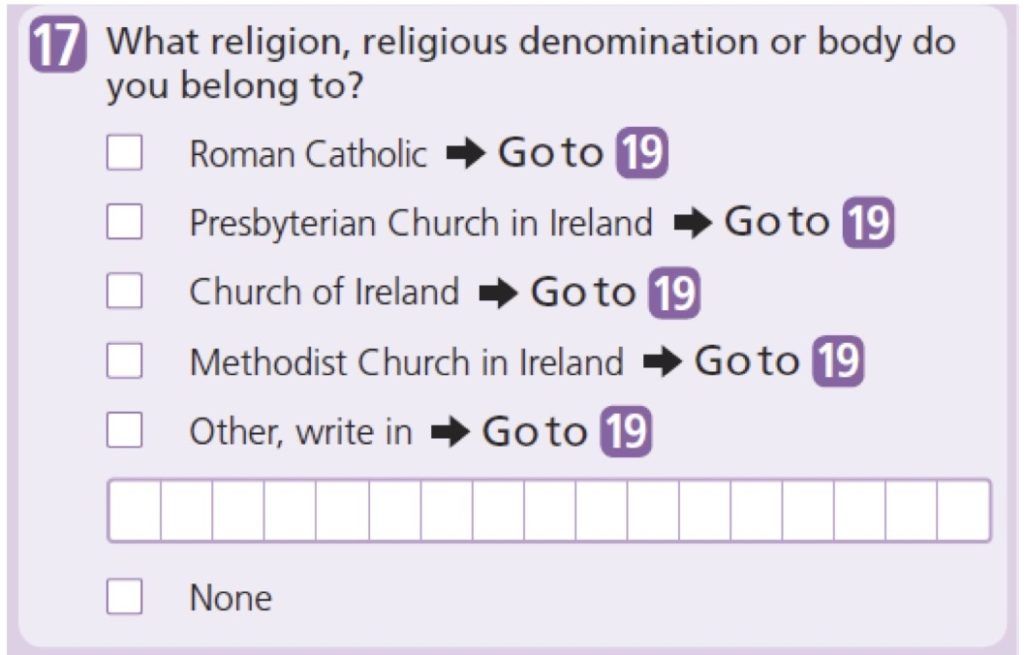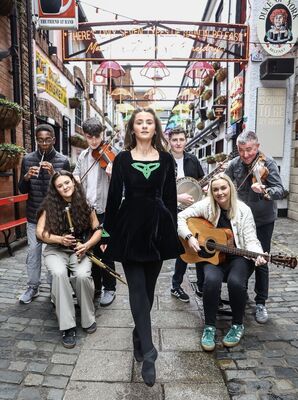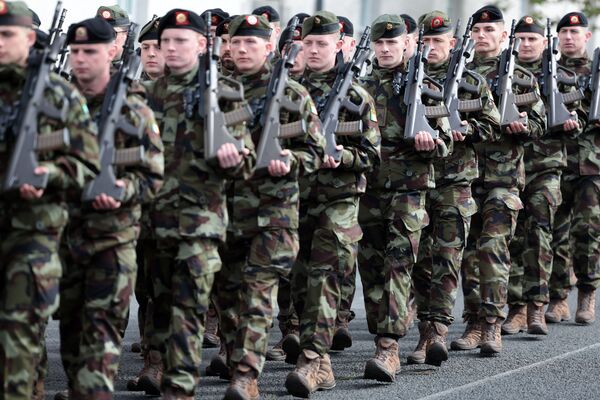YOU have been warned: you can’t draw constitutional conclusions from the Census 2021 figures for our stateen, because being a Catholic doesn’t mean you are in favour of a reunited Ireland.
The DUP’s Philip Brett makes it clear to all that these figures bring no real news: “For some considerable time, there has been clear recognition that Northern Ireland is made up of many minorities – Roman Catholic, Protestant and those who don't identify as anything.”
The Alliance Party’s Nuala McAllister takes a similar line: “The growth of Alliance in the last election is testament to the fact that religion doesn't necessarily determine political opinion and it is important to highlight that, especially when we are seeing headlines of Catholics outnumbering Protestants.”
What puts a big fat question mark over this nothing-to-be-seen-here approach is that when the stateen was established 100 years ago the headcount of Catholics and Protestants was very, very important. That’s why six counties were carved out of Ulster and the other three left with the south: because the number of Protestants in relation to the number of Catholics was core to the establishment of the NEI stateen. A Protestant majority was the key which unlocked everything: housing, jobs, election results.
And if, as Philip and Nuala insist, the figures from the recent census don’t matter, why is unionism paying so much dismayed attention to the figures? For the same reason that nationalism is giving them smiling attention. But, as Sinn Féin’s John Finucane has pointed out, these census figures have importance for everyone here: “We can all be part of shaping a better future, a new constitutional future and a new Ireland.”
#NICensus2021 highlights diverse society is here and now, with no clear majority for any particular group of people, a shared future should be embraced. https://t.co/GZ4ERH2SG4
— Nuala McAllister MLA (@NualaMcAllister) September 22, 2022
The SDLP looked at the figures and tried to sound a note that’d chime with those in favour a reunited Ireland, while at the same time not saying anything that might cause alarm: “It is my honest hope that we can all now take a moment of serious and sincere reflection about the scale of change we have experienced and commit to a conversation about the powerful potential for change in the future,” said leader Colum Eastwood.
George Orwell always claimed that the language you use reflects your quality of thinking. If he’s right, Colum’s language shows a man who wants to jump into the national debate but is anxious to keep elbow room, lest he and his party find it necessary to do a back-somersault flip.
So now that Catholics outnumber Protestants, when might we expect a border poll? That’s in the gift of the British Secretary of State, who will do (i) what’s good for Britain, and (ii) what’s good for the north of Ireland – maybe. This will mean looking hard at the showing of pro-border poll people in elections. So we can be pretty confident that as soon as there is a Sinn Féin Taoiseach in Dublin and a Sinn Féin First Minister in the North, the British SoS will will be forced to heed the voices of the electorate North and South.
As to a poll right now – rubbish. We will need considerable time to work out the structures and benefits that would shape any future Ireland.
Mary Lou McDonald says that should mean a poll sometime in this decade.
Faced with this prospect, unionism is becoming painfully aware that, if it wants to keep NEI afloat, it needs to convert nationalists and republicans into unionists. There’s no other way. Unfortunately, shouting “Céad míle fáilte!” to Catholics now is going to sound a bit weird when contempt for Catholics has been central to unionist thinking for the last 100 years.








